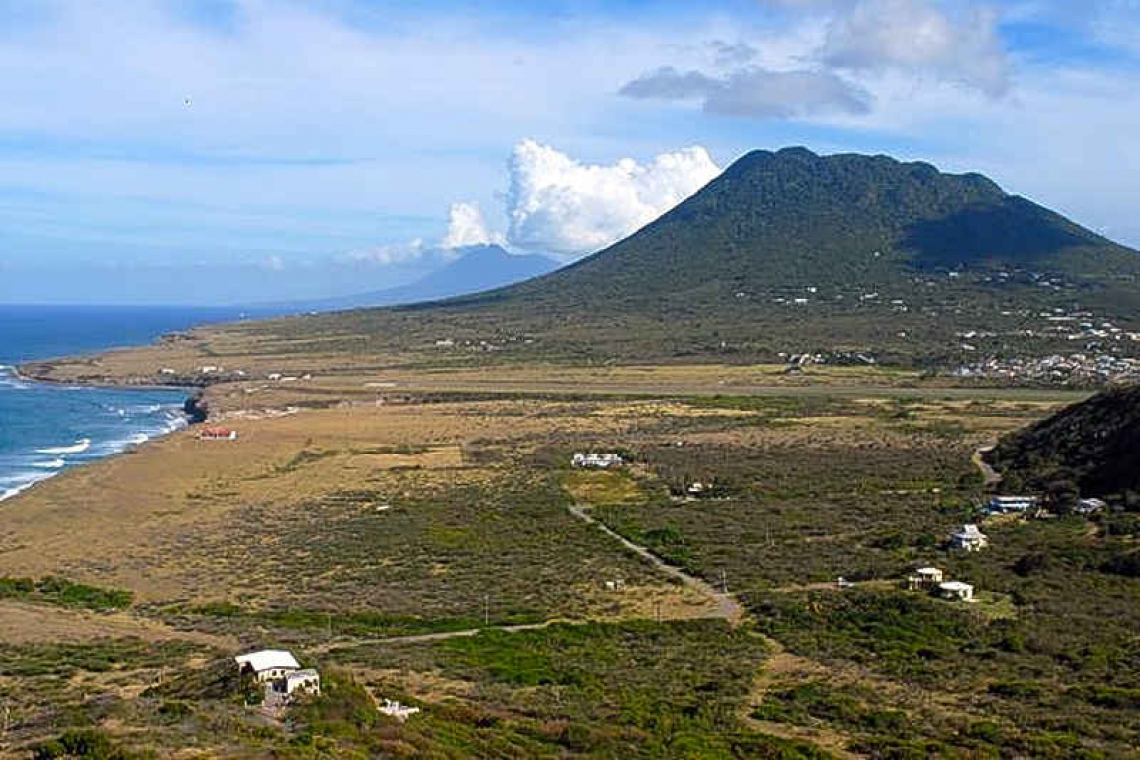Nature in St. Eustatius is vulnerable and under pressure, it is stated in the Nature and Environment Policy Plan.
ST. EUSTATIUS--The public entity St. Eustatius will implement a Nature and Environment Policy Plan (NEPP) in a joint effort with the Ministry of Agriculture, Nature and Food Quality, the Ministry of Infrastructure and Water Management, and the Ministry of Home Affairs and Kingdom Relations in the Netherlands. Projects such as the roaming animals project, the management and treatment of wastewater and those related to nature development will be continued.
The NEPP was prepared by the three ministries in 2019. It provides a framework for nature and environmental policy in the Caribbean Netherlands during the current decade.
By means of more detailed and island-specific implementation agendas, the public entities Bonaire, Statia and Saba, in collaboration with the ministries, prepared an inventory, description and prioritisation of the activities necessary to achieve the goals in the NEPP.
Subsequently, the Directorate of Economy, Nature and Infrastructure (ENI) started with the elaboration of the NEPP in 2020 in a joint effort with St. Eustatius National Parks Foundation STENAPA and other stakeholders under the leadership of Wolfs Consultancy.
This was done through the Implementation Agenda Nature and Environmental Policy Plan St. Eustatius. The Implementation Agenda was approved by the Executive Council on November 30, 2021.
The overall objective of the Implementation Agenda is to improve a sustainable food supply and to promote sustainable management and use of Statia’s nature and environment.
The Implementation Agenda includes a land-recovery programme and continuation of the roaming animals project. There is also funding allotted for a study into options for wastewater management and treatment on the island.
In connection with feasibility, a list of priorities has been drawn up for the short to medium term. For example, the agricultural sector is a priority for Statia to be less dependent on imports, to generate healthy food for its own population, and at the same time to create employment and economic opportunities.
Nature, in addition to its intrinsic value, is considered an important carrier for economic sustainability and development.
Currently, Statia’s nature is vulnerable and under pressure. The implementation of the policy plan is deemed urgent and necessary and is consistent with the mission statement of the directorate of ENI which is “Creating economic opportunities through infrastructure development and nature conservation”.
The fishery sector is also of high importance for the island. Development of this sector increases food security and strengthens and diversifies the local economy.
The environmental policy is still in its infancy and further development in the area of waste and wastewater treatment is deemed necessary.
The public entity has limited administrative power and expertise and will only be able to tackle these challenges in close cooperation with the Dutch ministries for financing and implementation and to guarantee long-term management and maintenance.
The NEPP also includes a governance structure for monitoring, coordinating and evaluating progress towards achieving its objectives. A steering committee has already been set up for Statia, which consists of representatives of the three ministries, deputy Government Commissioner Claudia Toet and a programme manager, who will be selected soon.
The Implementation Agenda is available on request at the ENI Directorate, or at website







